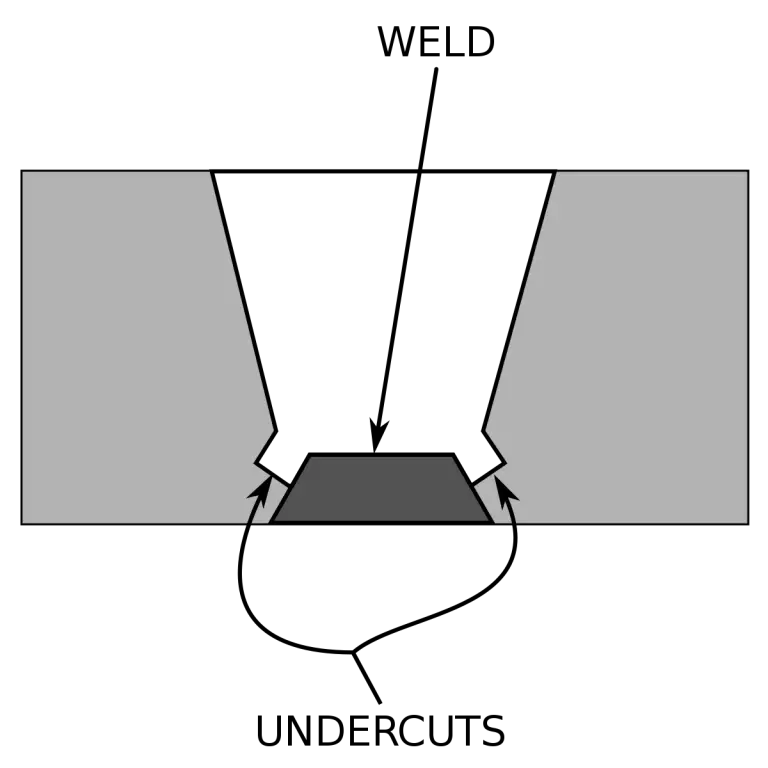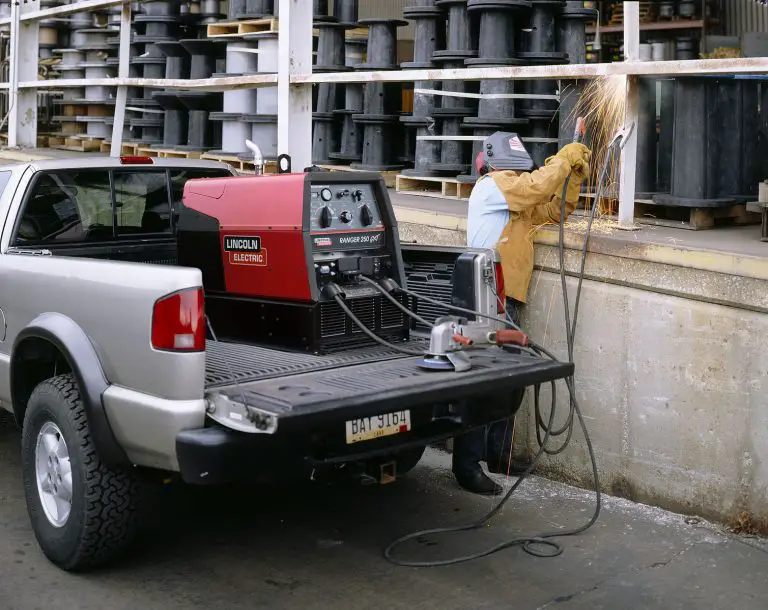How Do Welders Charge? – Rates And Info
This post contains affiliate links.
You may have heard that “welders make a lot of money”, but this isn’t always the case. This article will outline how freelance welders charge, and how single hand (employee) welders stack up to the freelance guys.
Like any field, it is really up to each individual to maximize their income and better their skills. If someone isn’t happy being an employee, then it may be best for them to start their own hustle.
Welders with fully set up rig trucks have huge opportunities to sub contract for tons of different companies. However, welders with no gear of their own may find it is harder to increase their pay.
Being An Employee (Single Hand Welding) Wages
This is probably the most simple situation for welders, and it makes up a huge portion of the professional welding work force.
Once a welder has certifications and experience, they usually begin the job hunt for different fabrication positions, pipe shops, or ironworking companies. If they land a position at one of these companies, their starting wage usually isn’t anything to write home about. For me personally, it was $18 an hour with overtime opportunities most weeks.
This isn’t a terrible paycheck for a younger guy/girl, but it can take some time before the company offers you a raise. I have had companies promise raises that never came to fruition – and there isn’t much I could do about it besides continuing to work and wait.
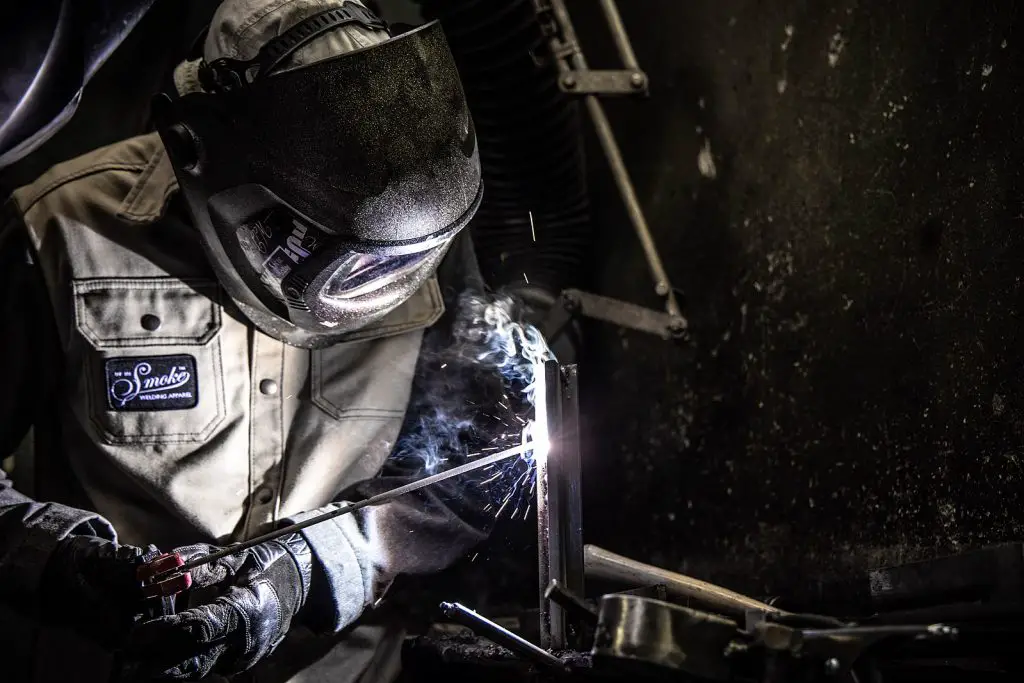
For employees that have been at the same shop for 20 years, their wage may be up to $30 an hour or even higher. Pipe fabrication shops may pay up to $45 an hour for their top welders. It really all depends on the shop and the area where it is located (cost of living).
Example: For a regular fabricator at the last shop I worked at, they started at $18 an hour. We could expect a $2 raise every year if we were going above and beyond. That will cap out at about $28-$30 an hour. The best fabricators at my last job had reached the $30 an hour mark, but they hadn’t had a recent raise.
Being a single hand welder means that you don’t have your own welding machine and extra equipment. You are using the shops machines and consumables to complete their projects.
For this reason, being a single hand welder pays significantly less than being a self employed welder. You don’t have to purchase an expensive machine, but you also get paid less. This $18-$30 an hour is a more consistent paycheck, but there is less room to grow since you don’t have your own rig truck.
Keep in mind that these companies are still charging high rates for their shop labor. They are profiting a lot off of your working hours, while your paycheck remains quite small.
Going Off On Your Own – Being Your Own Boss
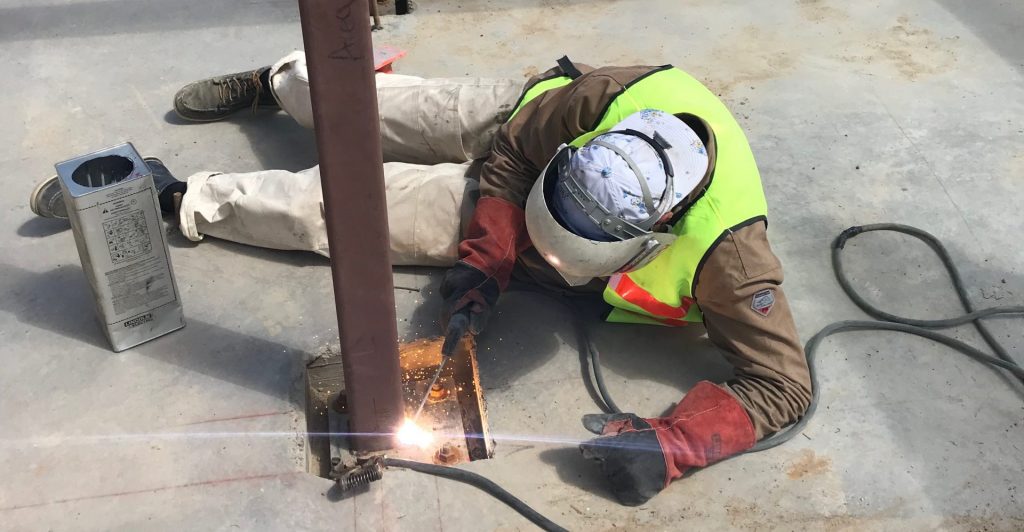
For welders with more of an entrepreneurial mindset, they may find that they get antsy being an employee. Starting their own hustle becomes more and more of a goal, and then the day comes when they leave the shop to start their own business. Working for yourself has no cap on maximum wages, and if you want more money then you’ll have to find more clients.
This wage discrepancy between single hand and freelance welders does make a lot of sense. If you’re using a companies equipment, you have no overhead costs – and therefore get paid less.
For freelancers, maintaining a welding machine, truck and buying tools can become very costly. However, you can charge a lot more per hour – which we’ll get into below.
Once you are setup with your tools and equipment, you can travel far and wide to complete different jobs. Many rig welders will live in several states throughout the year. Wherever the work is, they will travel there.
Freelance Welders/Rig Welder Info
So the time comes when you need to buy all of your equipment. Relying on the shops machines and tools is no longer an option, and every possible tool you’ll need will have to be on the truck and ready to go.
If we’re being honest, it isn’t realistic for everyone to pay cash for their first rig truck setup. Finding a used welding machine and financing a used truck may be the only option (at first). For those that can pay cash for all of the equipment to start their hustle, then more power to them. However, guys and girls in their 20’s may not be able to pull this off.
The video below is a great example of this. Jake Schofield is a professional pipeliner with a beast of a rig truck. He outlines his humble beginnings and how he pulled off setting up his first truck. This is a classic example of the saying “you gotta spend money to make money”.
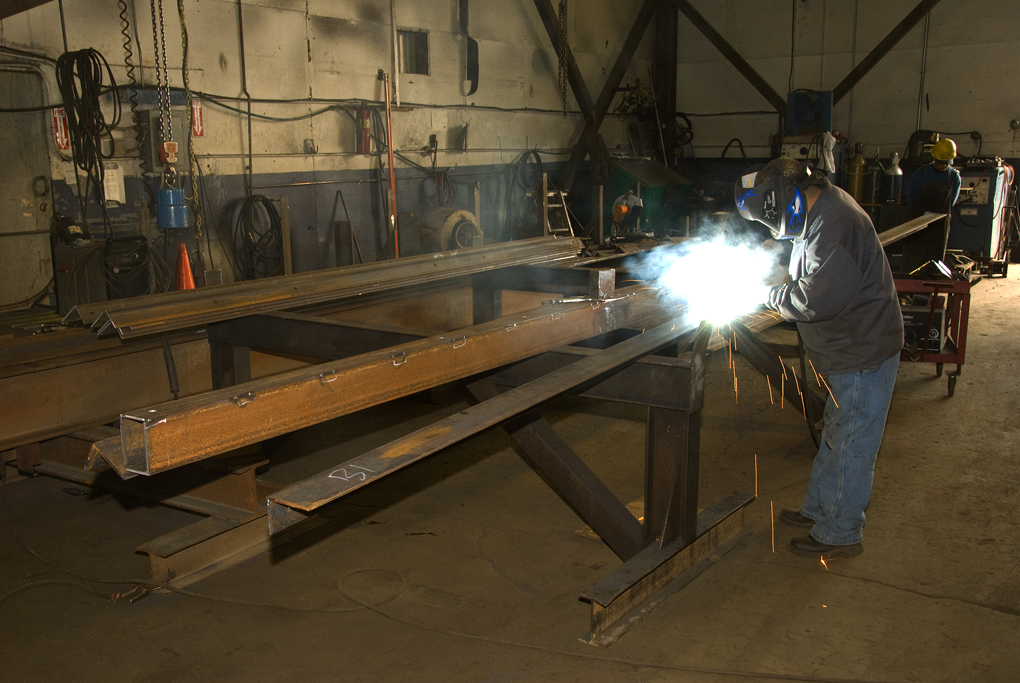
Once he got his first truck setup and tested out for the pipeline, he was making 6 figures at a young age!
On top of being able to work in the oil field, he is also setup for any mobile job that comes his way. If the oil field slows down, he can do extra work on the side to pay his bills. This is why having an engine driven welder is extremely beneficial. You can weld anywhere without having to rely on another persons power source.
Once an oil crash hits, these rig welders can start connecting with contractors to find structural work, repair work, etc. These jobs often pay upwards of $75 per hour.
If the pipeline work doesn’t interest you, a rig truck can still provide a full time income. If you have connections with different contractors, you can keep your truck busy by doing other work that comes your way.
It is good to be able to do it all, but finding a niche can be beneficial. I was known for being good at repair work, so most of my service calls were repair oriented as word spread. I could still do some fabrication and railing work, but the repairs were definitely my niche.
For folks who are really good at handrails and fencing, there is tons of work in every city for these types of projects. Finding a niche takes time, and it will take some research to find out which projects have the most demand in your area.
Structural jobs are a huge part of the mobile welding industry. Just about every building requires steel, so having connections can keep you busy on construction sites throughout the year.
However, most structural projects will require structural welding certifications. If you don’t have stick welding certs, then you must attain them before working on these larger jobs.
Rig Welding Rates/Mobile Rates
For rig welding work, $75 an hour is what comes to mind for most folks. In more expensive areas, rig welders will charge up to $100 an hour or more. Some will charge a mileage/service call fee while others won’t.
Minimums are often standard for a lot of rig/mobile welders. I had a 2 hour minimum for my mobile welding business which was $200. After the first 2 hours, the remaining hours were $85. The $30 buffer helped with my gas expenses.
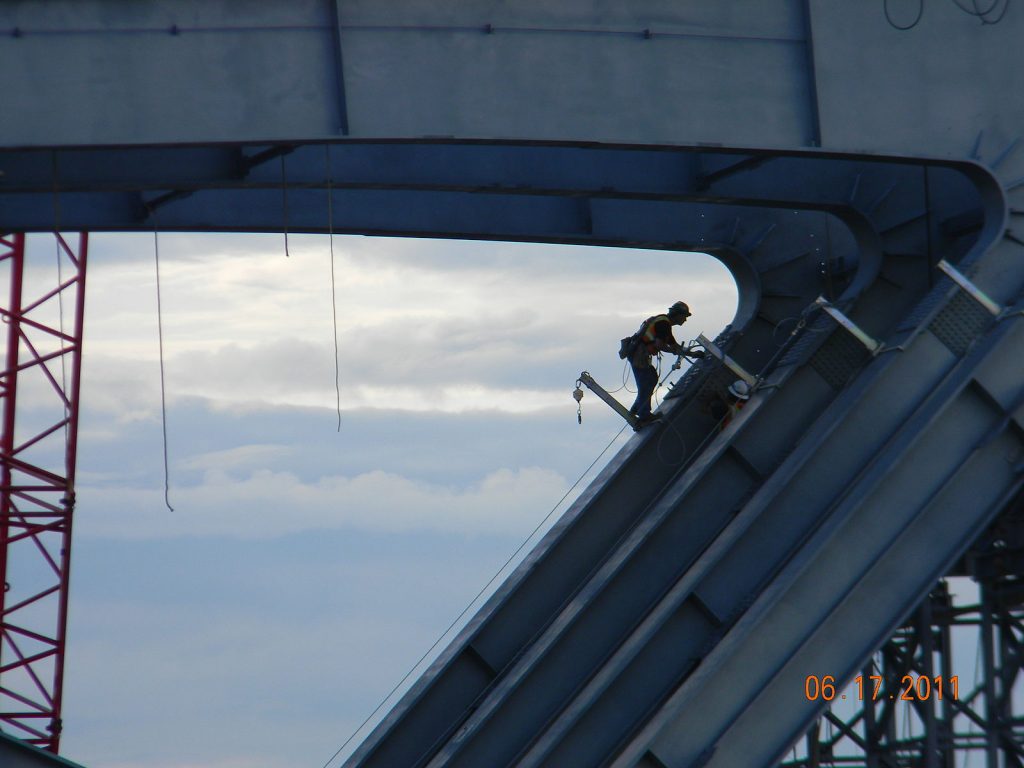
You’ll get a lot of potential clients that will say “it’ll only take you twenty minutes!”. These are not your friends nor are they good clients. They’ll nickel and dime you and usually won’t pay on time. Be very careful with these folks, and turn them down if you’re getting bad vibes.
A job taking 20 minutes is almost never the case, and you have to be firm that you won’t put your hand to it for less than “x” amount of dollars. YOU, the welder, knows how long a job will actually take because you’ve already completed plenty of jobs. The clients estimate is not a good thing to go off of.
If you live in a more expensive area, charging $100 an hour for rig work is not uncommon. For cheaper areas, competing welders may only charge $60.
Keep in mind that your rate should also be based on your experience. If you only have a few years of work under your belt, charging top dollar isn’t the best idea.
When the job requires steel and additional materials, a markup is often added for the customer. 25-30% is pretty standard, and will cover your gas costs to go pick up the material. However, some welders may mark their steel up 2x. The markup of materials varies a lot depending on what your business model is. 25% markup would be on the low end, while a 100$ (2x) markup would be considered high.
You can read more about bidding in our “how to bid a welding job” article here.
Pipeline Rig Welder Rates
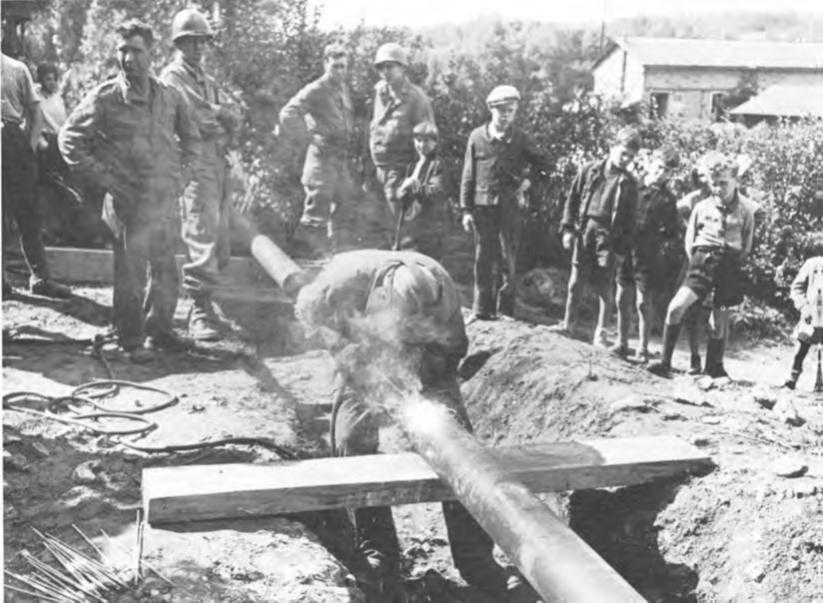
The pipeline rates are often similar to mobile welding, but the oil company provides a few more benefits.
In addition to a high hourly rate ($75ish), the welder will also get a per diem (daily) pay of $50-$100 for food and lodging.
The oil company will also pay about $15-$20 an hour for the use of the pipeliners rig truck. This split check setup is extremely profitable, and is often regarded as the holy grail of welding jobs.
A lot of oil companies will provide electrodes, grinding discs, and other consumables.
If you do the math, this pay scale is at the top end of welding jobs. $75 per hour base rate, $20 per hour for your truck, and $50 per diem = a great paycheck.
The problem is that pipeline jobs don’t usually last very long. You may work a job for 3 months and then have to travel to another state to find more work. So, although the pay is very appealing – you must be willing to travel throughout the year.
This often means that pipeliners live in campers or RV’s. It doesn’t make sense for them to have a mortgage when they are always on the road.
Pipeline welders generally retire earlier and settle down with a large sum of money. However, most of their working years will be spent living the nomadic lifestyle.
Ironworker Rates (Union Work)
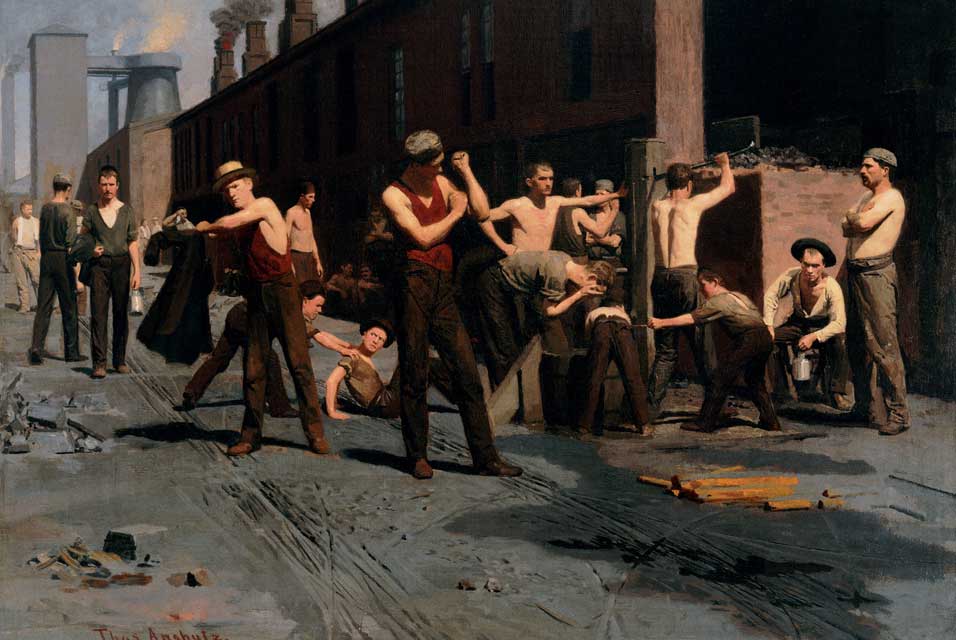
The other option for welders is to join a union such as the Ironworkers Union. This is an apprentice program which allows you to work your way up through the ranks. The goal is to become a Journeyman, which is is considered a master welder.
If you join the Ironworkers Union, you will start off as a paid apprentice. This is usually around $18 an hour. By training and continuing to progress your skills, your pay rate will also improve.
Once you gain more structural certifications, your pay rate will increase upwards of $25 an hour.
Keep in mind that joining the ironworkers union is a long term decision. You will only be able to work on union job sites and will not be able to do side work (usually).
For the highest paid ironworking positions, you must be in a larger city. New York City ironworkers are known for getting paid the most, but the conditions are rough and the cost of living is very high.
These ironworkers may make upwards of $100,000, but they are working crazy hours in bad weather.
Wrap Up
In conclusion, the pay scale is as follows:
keep in mind that these rates vary from city to city, and state to state.
| Job Title | Pay Rate | Reason For Pay |
| Shop Welder/Employee | $18-$40 per hour | Experience/Time at company |
| Rig Welder/Mobile | $60-$100 per hour | Experience/Cost of living/City or rural areas |
| Pipeline Rig Welder | $100+ per hour (including per diem and truck usage) | Experience/Different oil companies/Networking connections |
| Ironworker (apprentice) | $18-$25 per hour | Apprentice/Cost of living |
| Ironworker (mid level) | $25-$45 per hour | Experience/years on the job |
| Ironworker (Journeyman) | $45-$100 per hour | Highest Level/Veteran Welder Status |
Featured image credit : Wikimedia Commons





